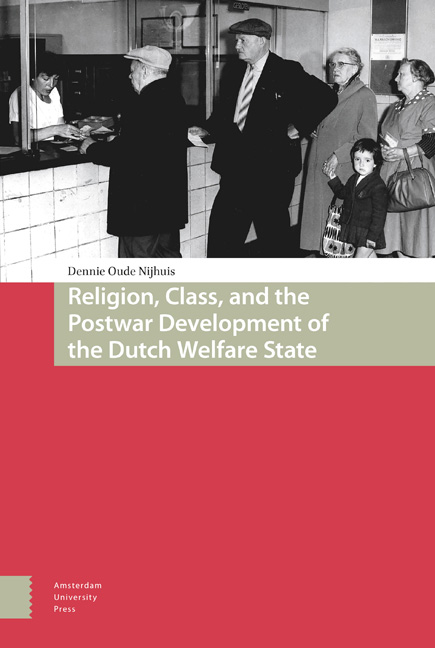1 - The Dutch Welfare Puzzle
Published online by Cambridge University Press: 11 December 2020
Summary
In the period following the Second World War, few advanced industrial societies have been as successful in creating and maintaining an elaborate system of social provision as the Netherlands. For many decades now, the Netherlands has enjoyed – or suffered from – a reputation as a vanguard among welfare states. Its system of “cradle-to-the-grave” care is viewed as generous in terms of both its accessibility and the high level of its benefits. At a time when scholars are increasingly concerned about the emergence of “dual” welfare systems, high levels of financial solidarity in the Netherlands still assure that all citizens are entitled to adequate levels of protection against labor market risks such as unemployment, sickness, disability, and old-age. Despite an ongoing need to reform in the face of economic challenges like the current ageing crisis, the Dutch welfare state's continual ability to provide generous levels of care and protection seems guaranteed. In fact, with a labor market participation rate that ranks among the highest in the European Union, the Netherlands stands out as being particularly well equipped to deal with these challenges. As such, it serves as a clear reminder that high and comprehensive levels of care and protection against labor market risks do not have to conflict with national economic performance.
Of course, the Netherlands has not always been known for its ability to combine generous levels of social provision with high employment levels. Indeed, during most of the twentieth century, it was not even considered as particularly successful in providing adequate levels of social protection for all its citizens. In the first half of the century, Dutch legislators acquired a strong reputation for their conservative views on welfare state development: a reputation that they only slowly managed to dispense with in the postwar period. By the late 1950s, contemporaries still widely regarded the Netherlands as something of a “welfare laggard”. Compared to most other Western nations, Dutch social insurance benefits offered moderate replacement rates at best, which were granted for short periods and based on rather strict eligibility criteria. Moreover, large sections of the population were still not covered against labor market risks like disability and sickness.
- Type
- Chapter
- Information
- Publisher: Amsterdam University PressPrint publication year: 2018



